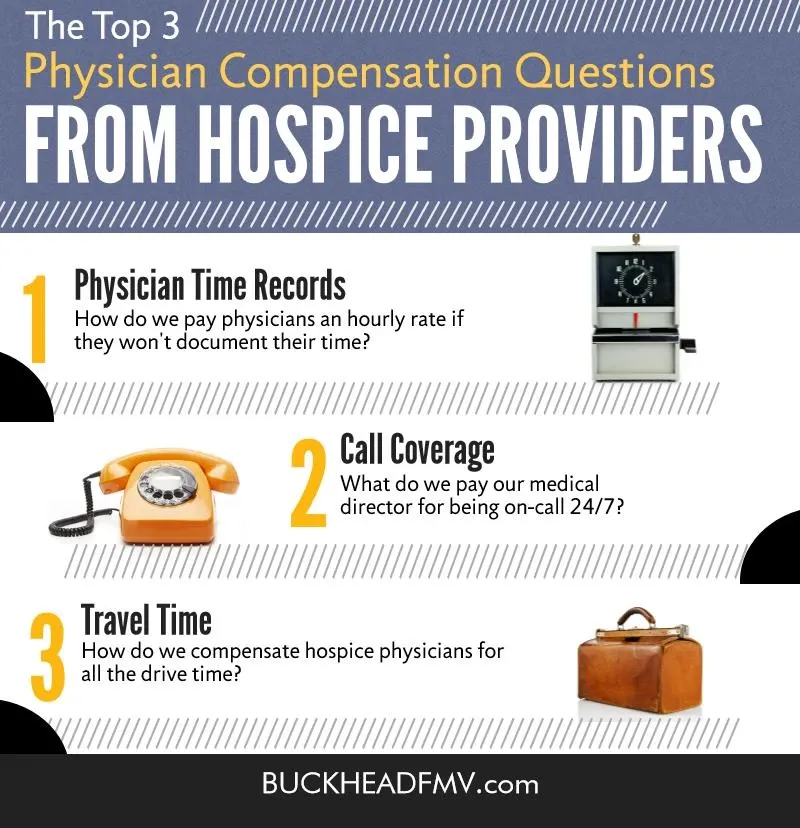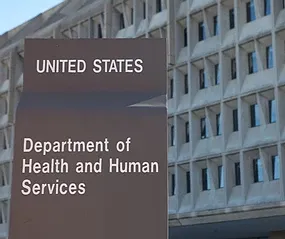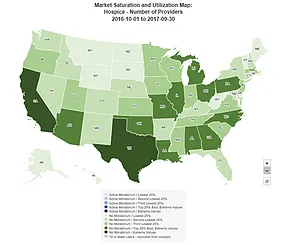The Top 3 Physician Compensation Questions From Hospice Providers
Darcy Devine • April 26, 2016

Many different factors make compensating hospice physicians challenging. First, hospices frequently contract with several different physicians for services. While each hospice has a medical director, it may also have physicians who provide back-up to the medical director, participate in interdisciplinary team meetings, conduct face-to-face encounters, etc. These physicians may provide just a few hours of service each week or each month to a hospice. These physicians may also have private practices and responsibilities beyond their contracted work with the hospice. As a result, getting them to document their time and submit time records can prove difficult. Hospices are often advised to pay physicians on an hourly basis instead of a monthly stipend. Thus, we are asked Question #1: How do we pay physicians an hourly rate if they won't document their time?
Question #2: What do we pay our medical director for being on-call 24/7? Hospices are required to make physician services routinely available to patients on a 24/7 basis. Hospice nurses are often on-call to deal with after-hour patient needs. However, an on-call physician will also take phone calls and be available for situations that require a physician. Therefore, hospices ask about the value of on-call time and how to compensate physicians for this burden.
Another frequent question relates to travel time. Hospices often contract with physicians to travel to patient homes and conduct the face-to-face encounters that are required by Medicare. These home visits may require a significant amount of physician travel time. Consequently, hospices frequently ask Question #3: How do we compensate physicians for all the drive time?
When a hospice client asks these questions, there are a few different options that we ask them to consider. If you have these or other hospice physician compensation questions, contact me at ddevine@buckheadfmv.com.

CON Laws, Scope of Practice Restrictions, and Provider Non-Compete Clauses Targeted in New Trump Adm
On Monday, December 3, 2018, the Department of Health and Human Services (HHS) – in collaboration with the Departments of the Treasury and Labor, the Federal Trade Commission, and several offices within the White House – released a report detailing recommendations for improving choice and competition in the healthcare industry.











